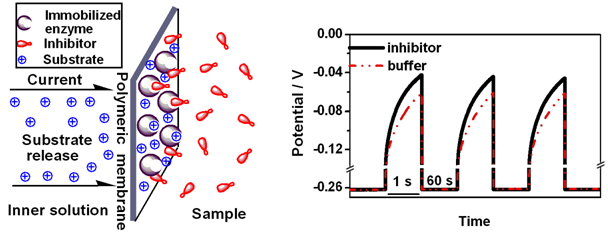The research group led by QIN Wei at the Yantai Institute of Coastal Zone Research has developed a general strategy for in situ biosensing using polymeric membrane ion-selective electrode (ISE). As a proof-of-concept experiment, butyrylcholinesterase (BuchE), which is a major target enzyme of cocaine, organophosphorus pesticides, and chemical warfare agents, was selected. This system has the flexibility of trapping substrate ions of enzymatic systems in the inner filling solution and modulating the ion flux of primary ions by membrane materials or an external voltage or a current. The substrate ions at the membrane-sample interface can be renewed by current-controlled reagent delivery, offering a rapid, reproducible, and continuous biosensing format. This study provides the new insight into potentiometric biosensing with ISE and laid the foundation for further application in environmental monitoring and drug screening.

Schematic illustration of current-driven ion fluxes of polymeric membrane ion-selective electrode for potentiometric biosensing
